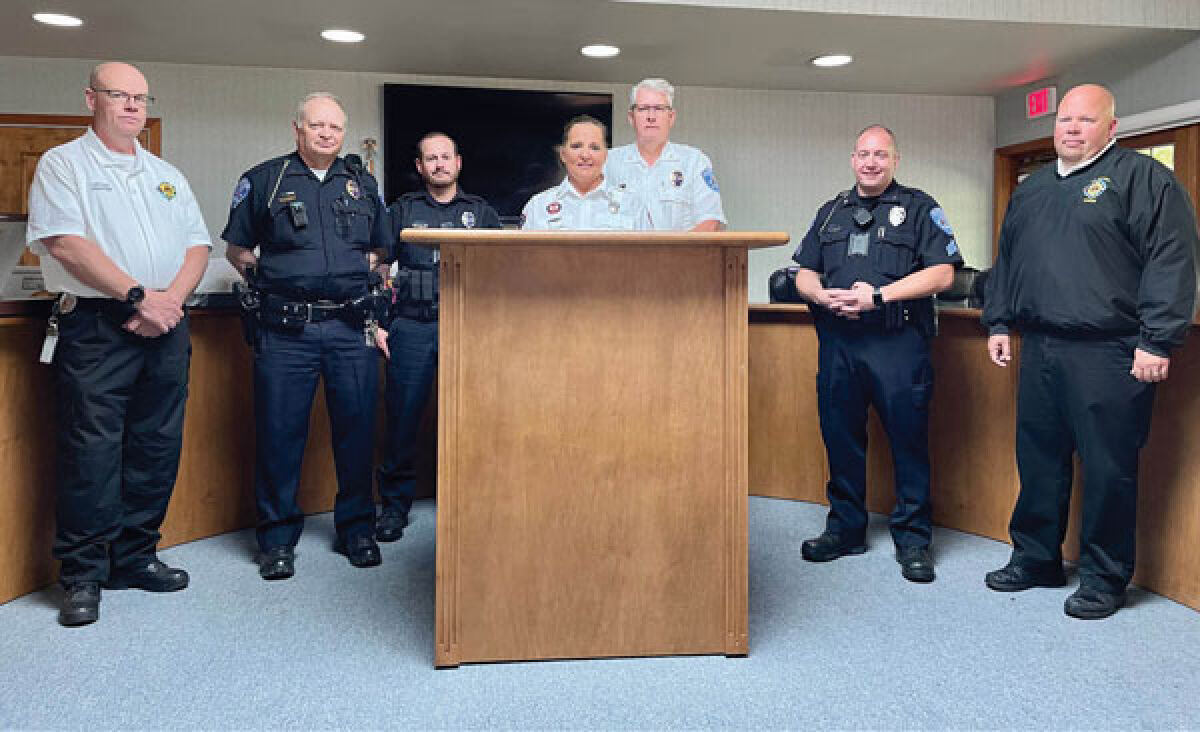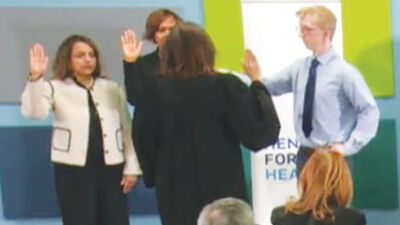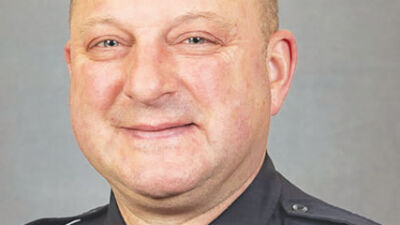ORCHARD LAKE — The Orchard Lake Police Department recently became much more than a facility where suspected criminals are taken to jail.
Approximately five years ago, Orchard Lake Police Chief William Nicholson became aware of a nonprofit organization based in Macomb County that teams up with police departments to bring hope to individuals who struggle with a substance use disorder and want to find recovery.
The name of the nonprofit is Families Against Narcotics, which operates in Clinton Township.
In 2017, FAN launched a Hope Not Handcuffs program, which provides opportunities for people who misuse drugs to walk into police stations to seek help for their addictions.
After becoming Orchard Lake’s police chief more than a year ago, Nicholson said, he “immediately” wanted the department to become part of the program.
“For us, I wanted to show the community more of the services we could offer in helping people, rather than just arresting people and writing tickets,” he said. “I think this is a thing where a person can come in, say they want help, and we can truly get them help. We can play a compassionate part (in) helping them with their problem.”
On June 27, the Orchard Lake Police Department became the 114th law enforcement agency in Michigan to join FAN’s Hope Not Handcuffs program. The West Bloomfield Police Department has been part of the program since 2018.
After opting to become part of the program, FAN provided training to the OLPD.
Nicholson explained how the process works when an individual chooses to go into the department to seek help.
“All they have to do is show up here, say that they would like help and we call Families Against Narcotics,” he said. “They would send out a volunteer as soon as possible — within an hour is their goal. We will make the person comfortable while we’re waiting for them to arrive.”
Making people “comfortable” does not include placing them in a jail cell.
Nicholson understands that some may be leery about voluntarily walking into a police department.
“You’ll be treated compassionately and warmly, and we will get you help,” he said. “Our main goal at that point is just to get them into treatment. They can feel comfortable coming in here. … We’re not going to run a check on them to try and arrest them for warrants, outstanding tickets or anything.”
Hope Not Handcuffs Program Director Kim Baffo provided details about what those who go to a police department in search of help can expect after arriving.
She said that FAN has comfort kits at participating police departments that contain things such as socks, underclothes and water.
“They (police department personnel) keep them comfortable, and then they contact the Hope Not Handcuffs coordinator in their area,” Baffo said.
Baffo said that an “angel” is dispatched to police departments after FAN is contacted.
“We meet them with compassion (and) dignity, and then we do the intake process with them to support them,” she said. “During that intake process, we get them into treatment. Our goal is to get (them) in that same day. … As soon as the intake process is done, we contact our transportation unit here at FAN, and we send an Uber.”
For Oakland County residents, Baffo said, FAN sends people to Common Ground for treatment.
She said that FAN is grant funded, and all of its services are free.
The nonprofit offers a peer recovery coach for individuals who want one.
“We have coaches strategically placed throughout the state,” Baffo said.
Coaches are trained and certified, according to Baffo. It is a paid position.
She said that “angels” are volunteer community members and college intern students who go through volunteer training.
FAN can also help individuals find a food bank and assist in trying to find a recovery home if the environment they’re in is not a safe one.
Baffo is aware that some individuals who take part in Hope Not Handcuffs may have warrants for their arrest.
“If they do have outstanding warrants, it’s like, let them come and take care of this when they have a clear head after treatment. And then the peer coach can even support them and take (them) to that court hearing,” she said. “Judges are on board with it.”
Nicholson discussed a couple of the negative ways drugs have impacted society.
“I think it’s contributing more and more to crimes, and it’s also part of the mental health crisis that’s going on,” he said. “A lot (of) times, mental health and drug use go hand-in-hand, and if you can’t get help for either one, how are we ever gonna solve the problem?”
Since its launch, FAN has reached nearly 8,000 participants with its services, according to Baffo.
“It’s so powerful,” Baffo said. “It’s really impacting our communities. In the long-run, it’s making our communities safer by getting individuals help instead of just doing the same thing and not having the support.”
Baffo shared a message for those who are struggling with addiction.
“They can start their journey — a change in their life,” she said. “We offer hope. Our doors are open to any individual struggling.”
From Nicholson’s perspective, Hope Not Handcuffs is a “great thing to offer the community.”
“Possibly, nobody will ever take advantage of it, but if it helps one person, it will have been worth the effort,” he said.
Individuals who aren’t comfortable going into a police station can also visit familiesagainstnarcotics.org or call (833) 202-HOPE to receive help.
 Publication select ▼
Publication select ▼



























